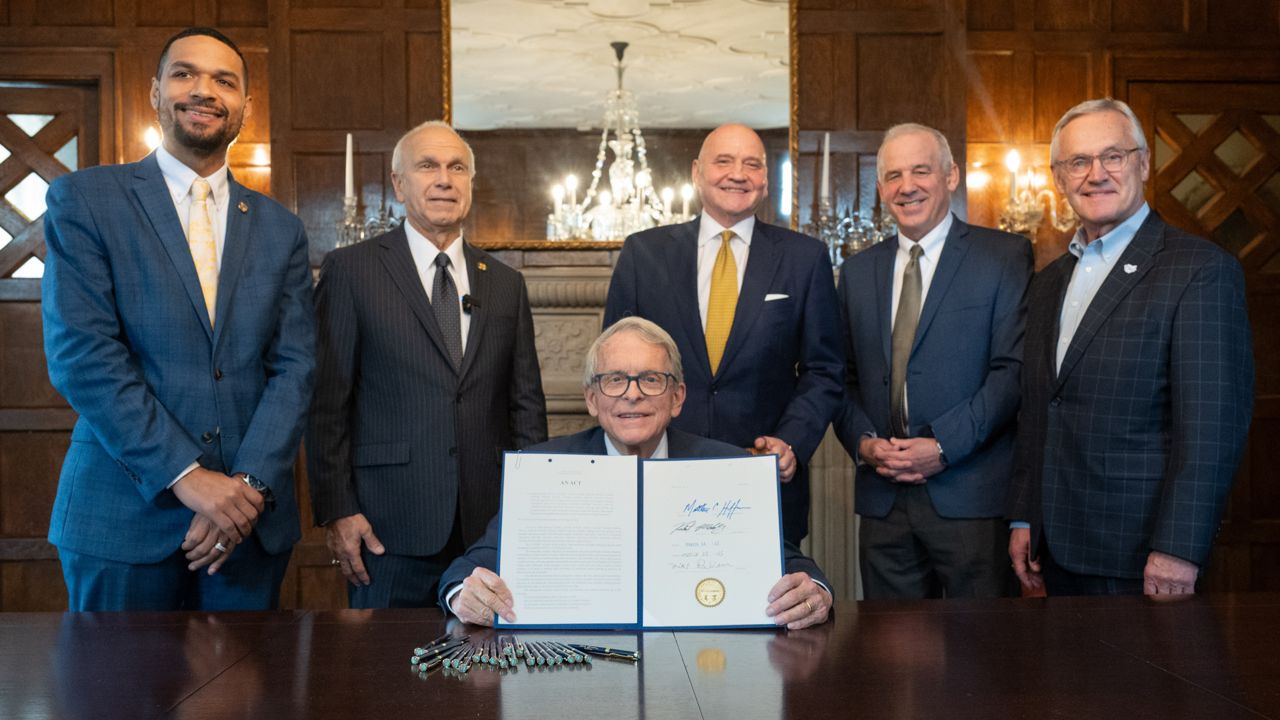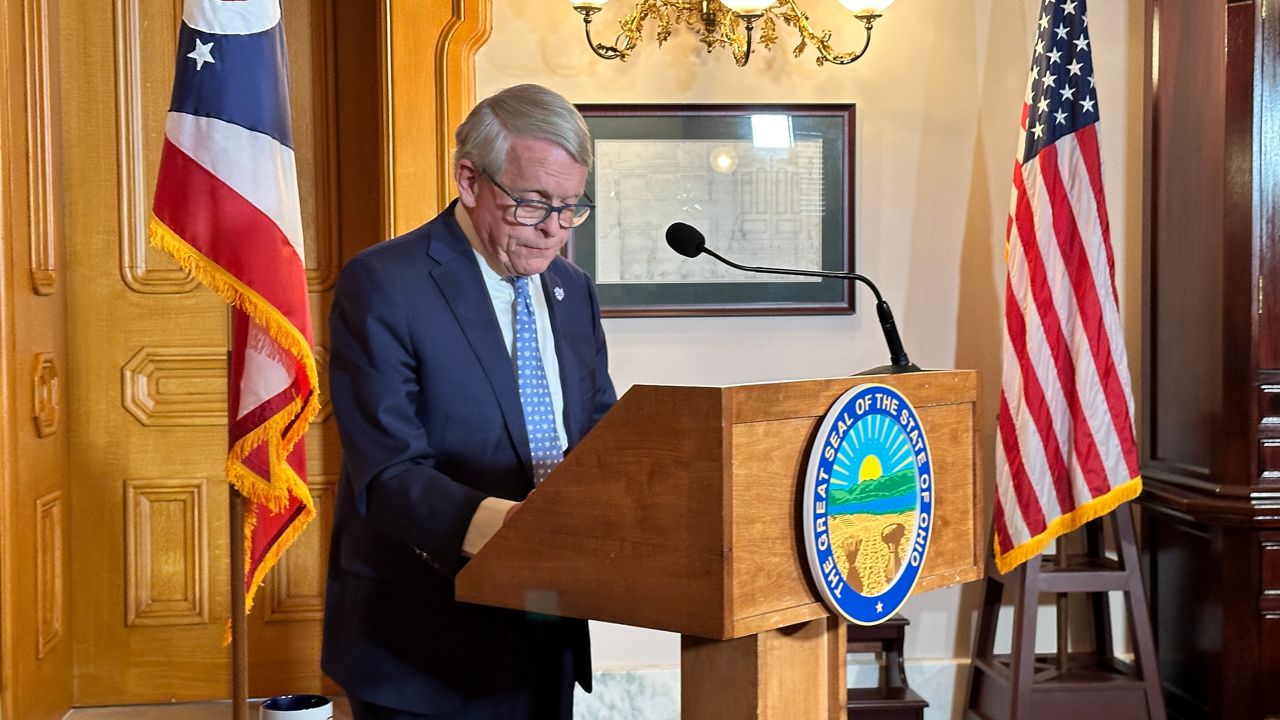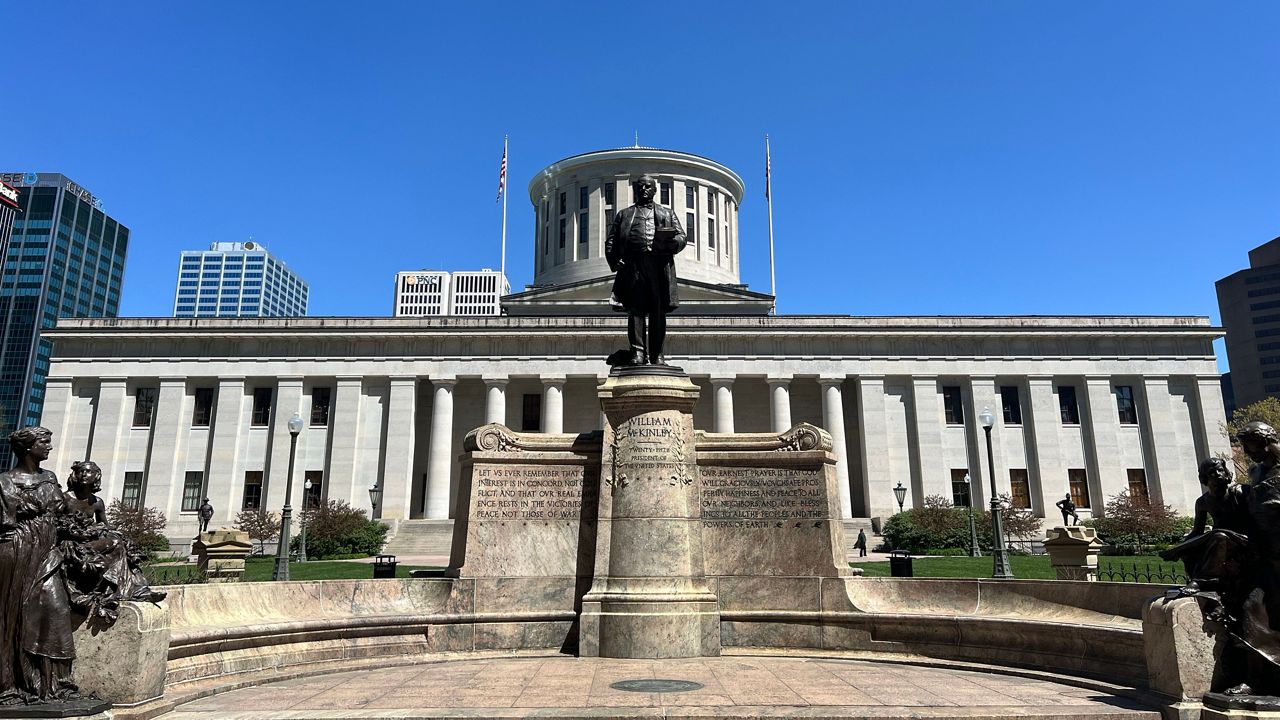CLEVELAND — Two Democrats from different ends of the party are the leading contenders in a closely-watched special primary election to fill the vacant congressional seat in Ohio’s 11th District.
Early voting began Wednesday in the primary race to succeed Democratic Congresswoman Marcia Fudge, who resigned in March to become President Joe Biden’s secretary of housing and urban development.
The primary will be held on Aug. 3.
While 13 Democrats will be on the ballot, the two frontrunners are Nina Turner and Shontel Brown.
Turner, a former Ohio state senator and Cleveland City Council member, became a national political figure when she co-chaired Sen. Bernie Sanders’ 2020 presidential campaign.
She’s a progressive firebrand who says Democrats in Congress must think big and act boldly, especially for impoverished areas like the 11th District.
“I liken it to if somebody was in the middle of the ocean drowning. Do they want somebody to caucus with people? Figure out whether we can do it bipartisanly? How should I come in there and save you?” Turner told Spectrum News in an interview at her campaign office last week. “Or do you want me to, no holds barred, put everything on the line to get into the middle of that ocean and come and save you? I think most people who are living in that kind of poverty would say the latter.”
While Turner has often battled the political establishment, Brown, the chair of the Cuyahoga County Democratic Party and a current county council member, is the political establishment and considers Fudge a personal mentor and friend; Fudge’s mother even recorded a TV ad for Brown.
Brown pledges to legislate like Biden tries to govern, in bipartisan and, if necessary, incremental fashion.
“I'm the only candidate in this race that has had any legislative experience during this pandemic,” Brown said. “All or nothing, you usually end up with nothing. You have to find ways to compromise or we end up with nothing at all.”
The 11th Congressional District is anchored in Cleveland and stretches south to Akron.
Although Brown and Turner’s differences echo the battle within the Democratic Party nationally, both women are claiming the mantle of Fudge and the two other Black Democrats — the late Stephanie Tubbs Jones and Louis Stokes — who have represented the majority-Black district in Washington for a half-century.
“I am right in line with the legacy of the people who have come before me. And what I want to do is build on that rich legacy,” Turner said.
“That's what I've been doing for the last nine years as an elected official here in Cuyahoga County,” Brown argued.
It’s easy to classify this race as the progressive outsider versus the establishment insider, and in certain ways that’s what it is, but when you speak with voters in the district, it becomes clear that they view it on a much deeper level.
In interviews last week, voters explained it’s about electing someone who will help the district confront its challenges.
Turner and Brown are campaigning on a lot of the same ideas. What separates them is how they want to approach making those ideas into reality.
Kim Wallace, a Turner supporter in Warrensville Heights, said she likes that Turner is willing to stand up to Biden if he’s not going far enough to achieve certain policy goals.
“She’s doing what the working people want,” Wallace said. “She’s doing what the people of this community need and what they want, instead of just talking the talk.”
Tor Smith, a Brown supporter in Shaker Heights, called both women excellent leaders, but said he likes Brown’s approach to compromise.
“People who are in the inner city neighborhoods have different needs than people in some of the outer suburbs, and you have to be able to find common ground to unite everyone in the city,” Smith told Spectrum News. “And I feel like Shontel is less polarizing.”
Brown has been endorsed by institutional Democrats like Hillary Clinton and South Carolina Rep. James Clyburn, while Turner is backed by Sanders and Congresswoman Alexandria Ocasio-Cortez.
But both women have each amassed dozens of endorsements by local and state leaders from all wings of the party.
Brown is hopeful her time in local office and her platform of health care, jobs and justice will give her an edge.
“People are very clear about who's been here and who's been getting things done. And that is what the narrative ought to be,” Brown said.
Turner is focusing on fighting poverty and her ability to address local concerns on a national stage, even with a president she’s been critical of in the past.
“If Vice President Harris could be on the [debate] stage and indict the now-president for his record in civil rights, and they can stand side by side and work together, President Biden and I are going to be just fine,” Turner said.
The Democratic winner will face one of two Republicans in November and will be heavily favored.
The 13 Democratic candidates are Turner, Brown, Jeff Johnson, Shirley Smith, John Barnes Jr, Tariq Shabazz, James Jerome Bell, Seth Corey, Will Knight, Pamela Pinkney, Martin Alexander, Isaac Powell and Lateek Shabazz.
The two Republicans running are Laverne Gore and Felicia Ross.










